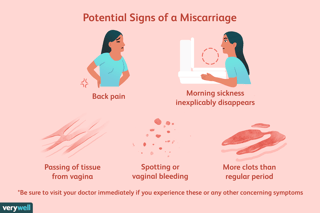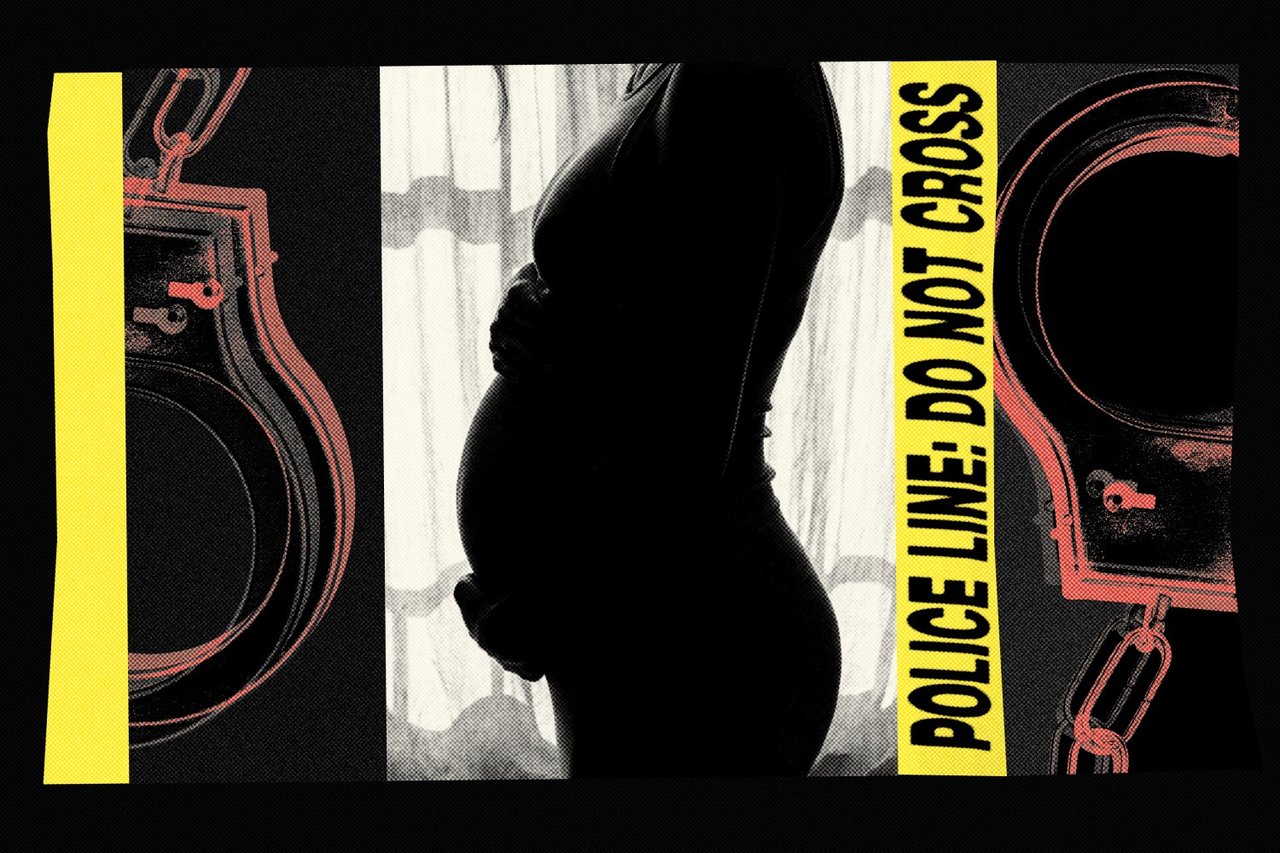
Miscarriage, also known in medical terms as a spontaneous abortion and pregnancy loss, is the death of an embryo or fetus before it is able to survive independently. Miscarriage before 6 weeks of gestation is defined by ESHRE as biochemical loss. Once ultrasound or histological evidence shows that a pregnancy has existed, the used term is clinical miscarriage, which can be early before 12 weeks and late between 12-21 weeks. Fetal death after 20 weeks of gestation is also known as a stillbirth. The most common symptom of a miscarriage is vaginal bleeding with or without pain. Sadness, anxiety, and guilt may occur afterwards. Tissue and clot-like material may leave the uterus and pass through and out of the vagina. Recurrent miscarriage (also referred to medically as Recurrent Spontaneous Abortion or RSA) may also be considered a form of infertility. Risk factors for miscarriage include being an older parent, previous miscarriage, exposure to tobacco smoke, obesity, diabetes, thyroid problems, and drug or alcohol use. About 80% of miscarriages occur in the first 12 weeks of pregnancy (the first trimester). The underlying cause in about half of cases involves chromosomal abnormalities. Diagnosis of a miscarriage may involve checking to see if the cervix is open or sealed, testing blood levels of human chorionic gonadotropin (hCG), and an ultrasound. Other conditions that can produce similar symptoms include an ectopic pregnancy and implantation bleeding. Prevention is occasionally possible with good prenatal care. Avoiding drugs, alcohol, infectious diseases, and radiation may decrease the risk of miscarriage. No specific treatment is usually needed during the first 7 to 14 days. Most miscarriages will complete without additional interventions. Occasionally the medication misoprostol or a procedure such as vacuum aspiration is used to remove the remaining tissue. Women who have a blood type of rhesus negative (Rh negative) may require Rho(D) immune globulin. Pain medication may be beneficial. Emotional support may help with processing the loss. Miscarriage is the most common complication of early pregnancy. Among women who know they are pregnant, the miscarriage rate is roughly 10% to 20%, while rates among all fertilisation is around 30% to 50%. In those under the age of 35 the risk is about 10% while it is about 45% in those over the age of 40. Risk begins to increase around the age of 30. About 5% of women have two miscarriages in a row. Some recommend not using the term "abortion" in discussions with those experiencing a miscarriage in an effort to decrease distress. In Britain, the term "miscarriage" has replaced any use of the term "spontaneous abortion" in relation to pregnancy loss and in response to complaints of insensitivity towards women who had suffered such loss. An additional benefit of this change is reducing confusion among medical laymen, who may not realize that the term "spontaneous abortion" refers to a naturally-occurring medical phenomenon, and not the intentional termination of pregnancy. From Wikipedia

Selena Chandler-Scott's case has drawn national attention to the criminalization of pregnancy loss under restrictive abortion laws, highlighting the legal and ethical complexities of fetal personhood statutes.
